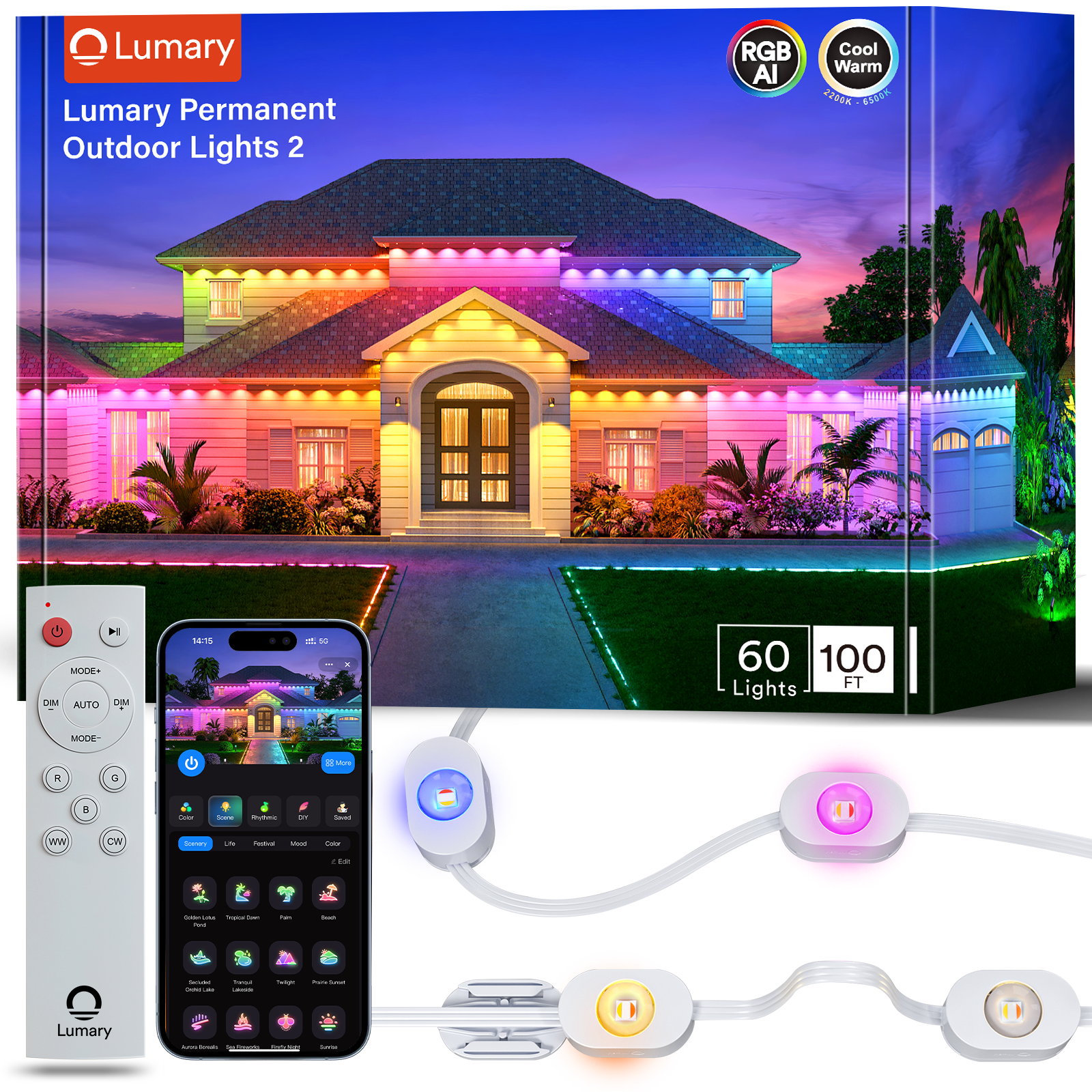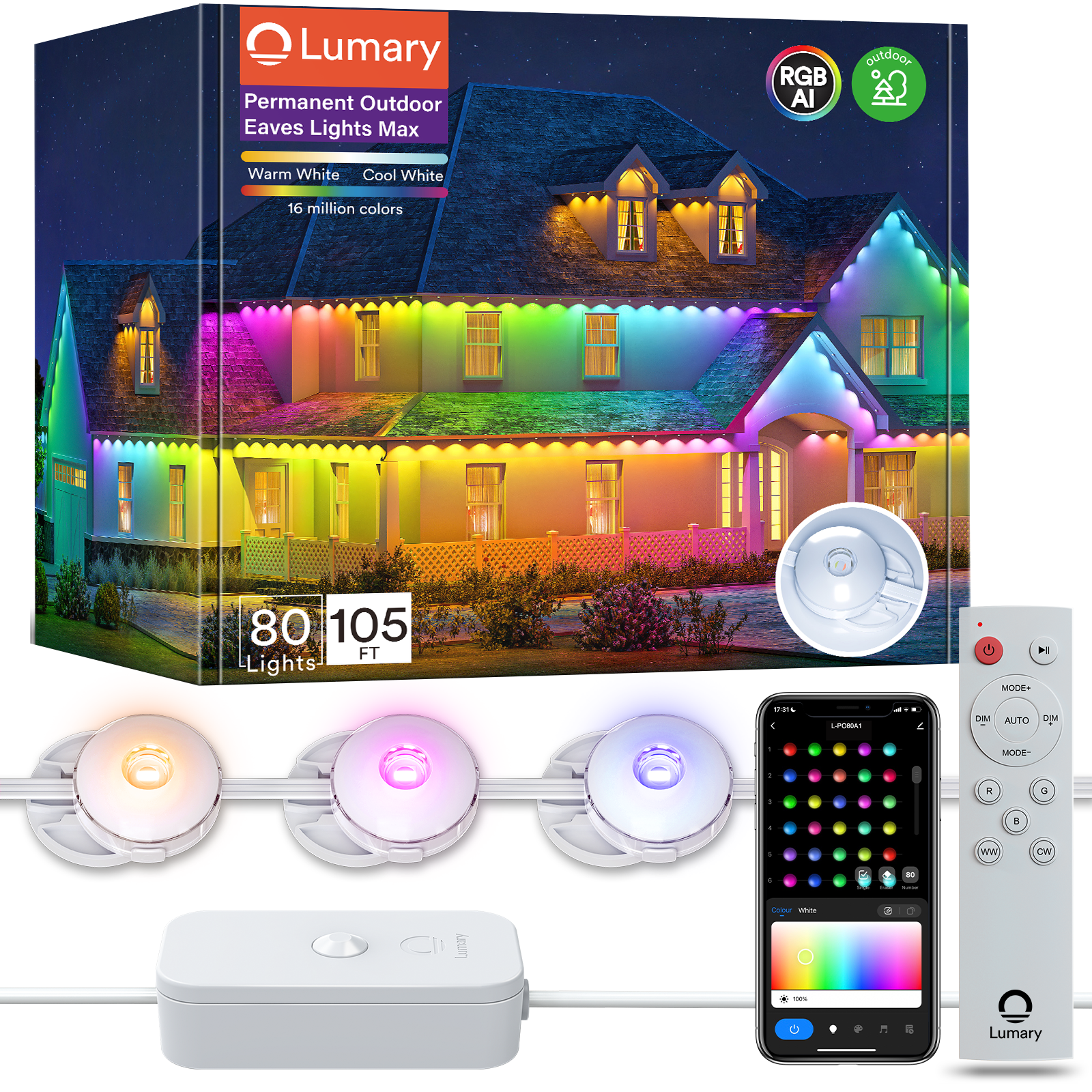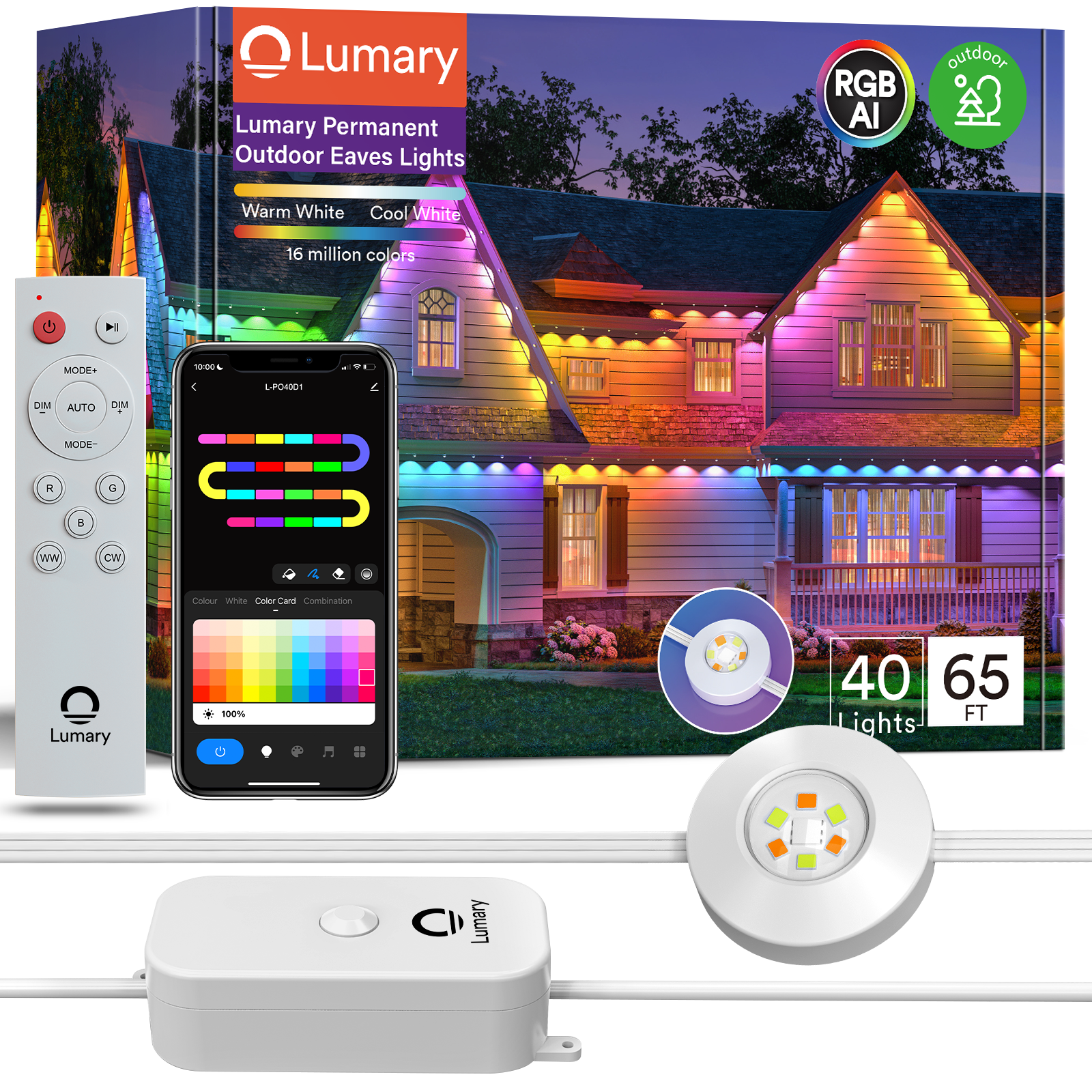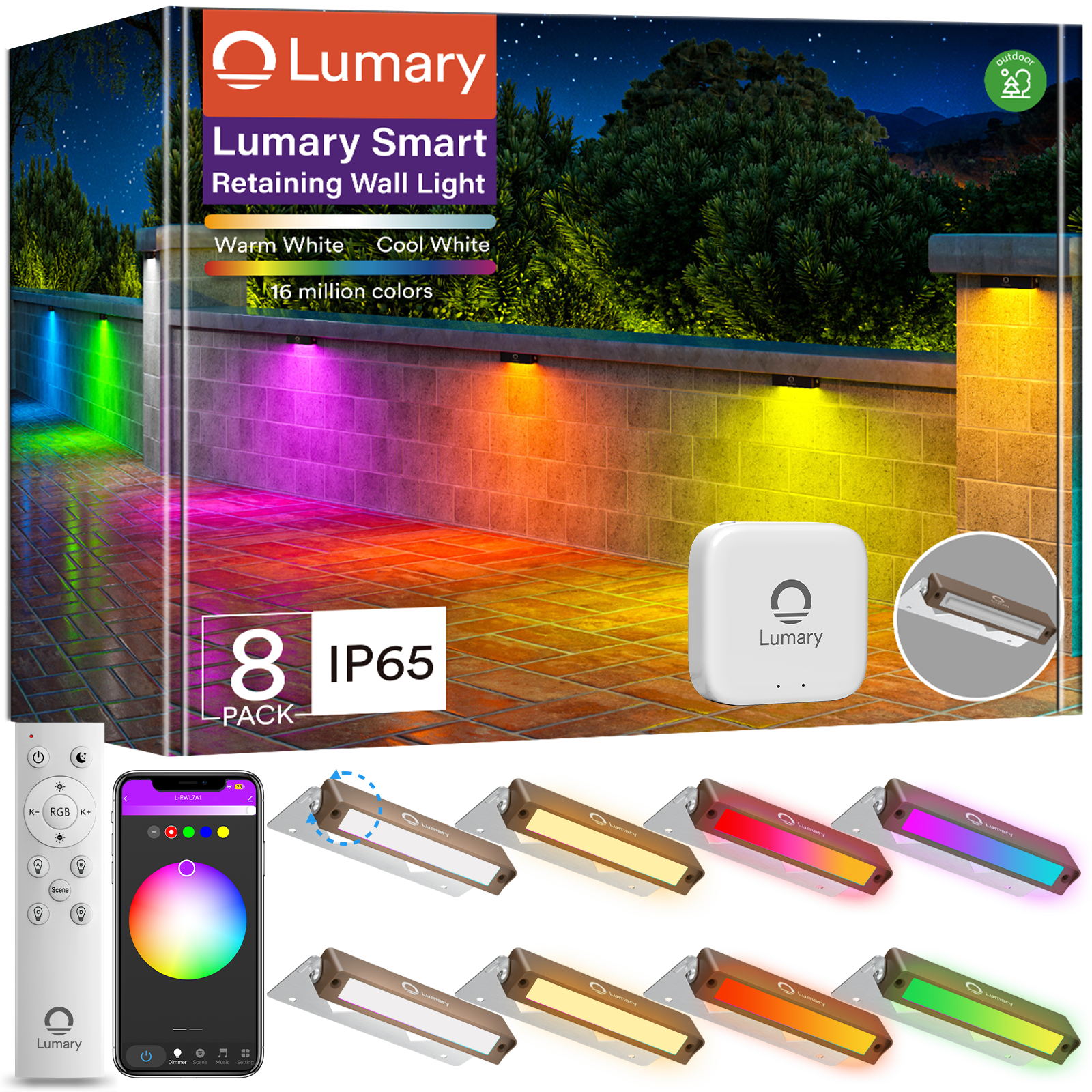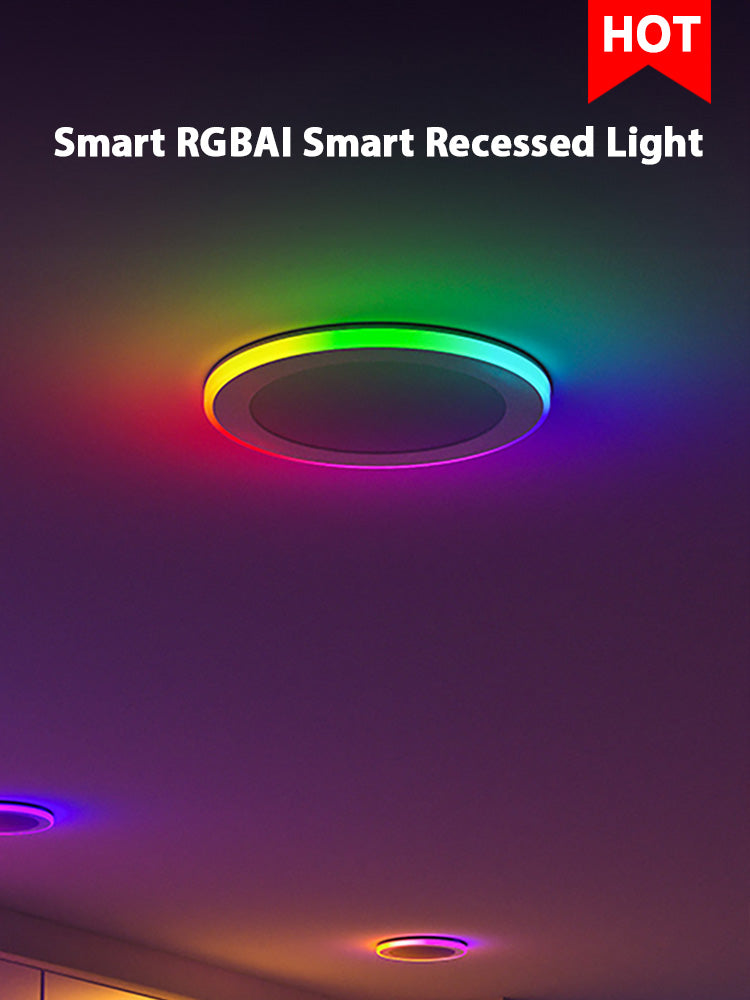Outdoor smart bulbs transform your outdoor spaces into vibrant, energy-efficient environments. You can enjoy the convenience of controlling your lighting with just a tap on your smartphone or a simple voice command. These bulbs offer impressive longevity, lasting between 20,000 to 50,000 hours, which means fewer replacements and more savings in the long run. With their ability to withstand various weather conditions, outdoor smart bulbs provide reliable performance year-round. Embrace the future of lighting and experience the perfect blend of functionality and style in your outdoor areas.
Understanding Outdoor Smart Bulbs

Outdoor smart bulbs are more than just a lighting solution; they offer a blend of technology and convenience that enhances your outdoor spaces. Let's dive into what makes these bulbs a smart choice for your home.
Features of Outdoor Smart Bulbs
Weather resistance
Outdoor smart bulbs are designed to withstand the elements. Whether it's rain, snow, or intense sunlight, these bulbs keep shining. Their robust construction ensures they perform reliably in various weather conditions, making them a dependable choice for any outdoor setting.
Energy efficiency
These bulbs are not only smart but also energy-efficient. They help you save on electricity bills by minimizing unnecessary light and energy usage. With features like dimming and scheduling, you can control how much energy your bulbs consume, ensuring they only use power when needed.
Connectivity options
One of the standout features of outdoor smart bulbs is their connectivity. You can control them wirelessly via a remote, smartphone app, or even voice assistants like Alexa or Google Assistant. This flexibility allows you to manage your lighting from anywhere, whether you're at home or away.
Types of Outdoor Smart Bulbs
Wi-Fi enabled bulbs
Wi-Fi enabled bulbs connect directly to your home network. This means you can control them from your smartphone or tablet, no matter where you are. They're perfect for those who want seamless integration with their existing smart home systems.
Bluetooth enabled bulbs
Bluetooth enabled bulbs offer a straightforward setup. You can control them directly from your smartphone without needing a hub or bridge. They're ideal for smaller setups or areas where Wi-Fi might not reach.
Zigbee and Z-Wave bulbs
Zigbee and Z-Wave bulbs require a hub to connect to your smart home system. They offer reliable connectivity and are great for larger setups where multiple devices need to communicate with each other. These bulbs are perfect for tech enthusiasts who want to create a comprehensive smart home environment.
Outdoor smart bulbs bring a new level of convenience and efficiency to your outdoor lighting. By understanding their features and types, you can choose the right bulbs to transform your outdoor spaces into vibrant, energy-efficient environments.
Preparing for Installation
Getting ready to install your outdoor smart bulbs involves gathering the right tools and materials and ensuring safety. Let's break it down step by step.
Tools and Materials Needed
Before you start, make sure you have everything you need. This will make the installation process smooth and hassle-free.
Required tools
-
Screwdriver: Essential for securing fixtures and mounting brackets.
-
Ladder: Helps you reach high places safely.
-
Drill: Useful for making holes if needed for mounting.
-
Voltage tester: Ensures that the power is off before you start working.
Recommended materials
-
Mounting brackets: Keeps your lights securely in place.
-
Weatherproof sealant: Protects connections from moisture.
-
Cable ties: Organizes and secures cables neatly.
-
Extension cords: Provides power to areas far from outlets.
Safety Precautions
Safety should always be your top priority when installing electrical devices outdoors. Here are some key precautions to keep in mind.
Electrical safety
-
Turn off the power: Always switch off the power at the circuit breaker before starting any electrical work.
-
Use a voltage tester: Double-check that no current is flowing through the wires.
-
Avoid wet conditions: Never work with electricity in wet or damp conditions to prevent shocks.
Weather considerations
-
Check the forecast: Plan your installation on a dry day to avoid complications.
-
Use weatherproof materials: Ensure all components are rated for outdoor use to withstand rain, snow, and sun.
-
Secure all fixtures: Make sure everything is tightly fastened to prevent damage from wind or storms.
By preparing thoroughly and following these safety tips, you'll set yourself up for a successful installation of your outdoor smart bulbs. Enjoy the process and look forward to a beautifully lit outdoor space!
Step-by-Step Installation Process

Installing outdoor smart bulbs can seem daunting, but with a clear plan, you'll have them up and running in no time. Let's walk through the process step by step.
Setting Up the Outdoor Smart Bulbs
Connecting to a power source
First, you need to connect your outdoor smart bulbs to a power source. Ensure the power is off at the circuit breaker before you start. Use a voltage tester to confirm there's no current. Once you're sure it's safe, install the bulbs into their fixtures. Secure them with mounting brackets if necessary. Make sure all connections are tight and weatherproof to prevent moisture from causing issues.
Pairing with a smart home system
After connecting the bulbs to power, it's time to pair them with your smart home system. Most outdoor smart bulbs come with an app for easy setup. Download the app on your smartphone and follow the instructions to connect the bulbs to your Wi-Fi network. If your bulbs use Bluetooth, simply enable Bluetooth on your phone and pair them directly. For Zigbee or Z-Wave bulbs, you'll need a compatible hub. Once paired, test the connection by turning the bulbs on and off through the app.
Configuring Smart Features
Setting up schedules
One of the best features of outdoor smart bulbs is the ability to set schedules. Open the app and navigate to the scheduling section. Here, you can set specific times for your lights to turn on and off. This feature helps you save energy and ensures your outdoor spaces are well-lit when needed. You can also create scenes with multiple bulbs to set the perfect ambiance for different occasions.
Integrating with voice assistants
To make controlling your outdoor smart bulbs even easier, integrate them with voice assistants like Alexa or Google Assistant. In the app, find the option to link your bulbs with your preferred voice assistant. Follow the prompts to complete the integration. Once set up, you can control your lights with simple voice commands. Say goodbye to fumbling for your phone or remote—just ask your assistant to adjust the lighting for you.
By following these steps, you'll enjoy the full benefits of your outdoor smart bulbs. From setting schedules to using voice commands, these bulbs offer a versatile and convenient lighting solution for your home.
Troubleshooting Common Issues
Even with the best outdoor smart bulbs, you might encounter some hiccups. Don't worry—most issues have simple fixes. Let's dive into common problems and how you can solve them.
Connectivity Problems
Wi-Fi signal issues
Outdoor smart bulbs rely on a strong Wi-Fi connection to function properly. If your bulbs aren't responding, check the Wi-Fi signal strength. You can use a Wi-Fi analyzer app to see if the signal reaches your bulbs. If the signal is weak, consider moving your router closer or installing a Wi-Fi extender. This will boost the signal and ensure your bulbs stay connected.
Device compatibility
Sometimes, your smart bulbs might not work well with certain devices. Make sure your bulbs are compatible with your smart home system. Check the manufacturer's website for compatibility lists. If you're using a hub, ensure it's updated to the latest firmware. This can resolve many compatibility issues and improve overall performance.
Performance Issues
Flickering lights
Flickering lights can be annoying. They often result from voltage fluctuations or loose connections. First, check that the bulbs are screwed in tightly. If they still flicker, try plugging them into a different outlet. You might also want to consult an electrician to check for any wiring issues in your home.
Delayed responses
If your outdoor smart bulbs respond slowly, it could be due to network congestion. Too many devices on your network can cause delays. Try disconnecting some devices to see if performance improves. You can also restart your router to refresh the connection. If delays persist, resetting the bulbs to factory settings might help. Follow the instructions in the app to reset and reconfigure your bulbs.
By addressing these common issues, you can enjoy seamless operation of your outdoor smart bulbs. Remember, a little troubleshooting goes a long way in maintaining a bright and efficient outdoor space.
You've successfully navigated the installation process for your outdoor smart bulbs. Remember to regularly check connections and clean fixtures to maintain optimal performance. These bulbs offer a fantastic entry into smart home technology, much like how many people start their smart home journey. Don't stop here—explore additional smart home integrations to enhance your living space. Whether it's adding motion sensors or syncing with other devices, the possibilities are endless. Enjoy the convenience and ambiance that smart lighting brings to your outdoor areas.


